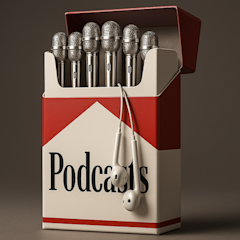How to Be Great (Without Screaming)
We’re obsessed with chefs right now.
The Bear. Chef’s Table. Boiling Point. The Menu. Burnt.
Their kitchens are confessionals. The food is just a byproduct.
Even Ratatouille got it right—the art of cooking isn’t just about food. It’s about madness. Control. Art. Childhood trauma disguised as foam on a plate.
We love watching these tortured geniuses melt down on screen, throw pans, scream about risotto, and seek redemption through lamb jus.
But what about when the trauma is real? When the blood isn’t stage makeup and the kitchen is more like a monastery than a war zone?
That’s Curtis Duffy… one of the best chefs on the planet.
Curtis wrote this amazing memoir called Fireproof: Memoir of a Chef. I couldn’t believe what I was reading—the tragedy, the resilience, the force of will.
We unpack it all on my latest podcast (link below), and what it really takes to be great at anything. Our conversation is a masterclass in pain, presence, and the quiet war for excellence.
(He also told me how to make the best BLT possible for my wife. So there’s something in here for everyone.)
Here’s what I learned from him:
A.] Some people are forged in hell—and build heaven.
Curtis’s backstory is an A24 horror film. His father killed his mother and then himself. And somehow, he didn’t become a villain. He became a monk. He took all that chaos and built a kitchen so disciplined it’s one of the best in the world. No screaming. No panic. No cliches. Just focus. Just peace.
B.] Discipline > Motivation.
Curtis doesn’t wait to feel “inspired.” He shows up. Every day. Fold towels. Boil eggs. Repeat. It’s the same reason Kobe shot free throws before school. Or why Seinfeld wrote jokes on Christmas. Discipline is boring. But it’s the path. You want to be great? Get bored and keep going.
C.] Trauma is a knife. You either cut others or carve meaning.
Curtis could’ve become just like his father. He knew it. That fear haunted him. But instead of running from it, he faced it. Every day. He turned the fear into fuel and built the opposite kind of legacy—one where young chefs are mentored, not destroyed.
D.] Obsession is the entry fee.
Curtis said: “You have to be so obsessed with it, you’d die for it.” That’s not an exaggeration. That’s the cost of greatness. If you’re not all-in, the kitchen—or comedy, or business, or writing—will eat you alive. Casual interest is for brunch. Not for Michelin stars.
E.] Folding towels is spiritual.
His staff folds towels for a week. Perfectly. Not because customers notice. But because they do. That’s the secret. The invisible stuff becomes the visible stuff. That’s how you build excellence: one towel, one breath, one moment at a time. How you do anything is how you do everything.
F.] The best chefs are silent.
No Gordon Ramsay theatrics. No flying pans. Just presence. Just respect. Curtis runs his kitchen like a dojo. And you feel that in the food. Calm. Focused. Alive.
G.] Talent is nice. But work is everything.
Anyone can have a good palate. Few can show up at 5 a.m. to boil eggs for the 3,000th time. Talent is a spark. But work ethic is the flame that keeps burning when the power goes out.
I asked him: “What’s the difference between two stars and three?”
He said: Make your worst day better than everyone else’s best.
It doesn’t happen overnight. It takes time. Discipline. The 1% better every day mentality.
That’s not just cooking. That’s life. Parenting. Startups. Stand-up. Investing. Folding your own mental towels.
Greatness isn’t loud. It doesn’t show up in a Ferrari with gold flakes on its sushi.
It’s quiet. Methodical. Relentless. And sometimes it smells like smoked cherry ice cream at 2 a.m.
Thank you, Curtis, for showing me what true greatness looks like.
And yes, I’m going to make that BLT—and try not to burn the toast.










